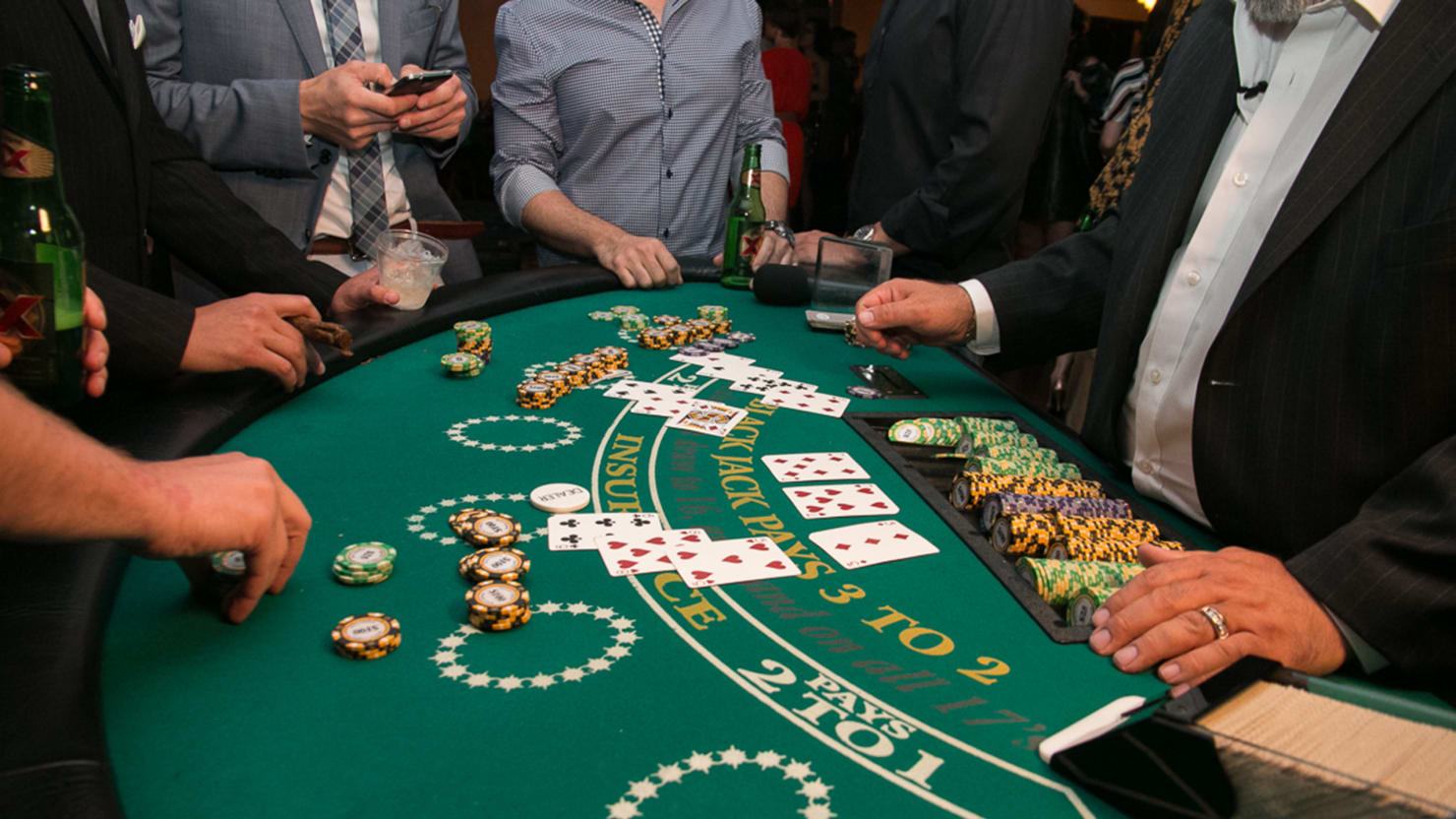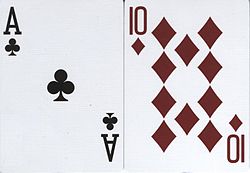When Do Dealers Hit In Blackjack
When a player holds a 9-3 (12) against a dealer 3 upcard, he is reluctant to hit for fear of drawing a 10 and busting, especially when the dealer is showing a “weak” upcard. In the case of 6-5 (11) vs a dealer 10, players are averse to double down (and double their bet) because they fear the dealer has a. In most casinos, the dealer is required to hit on hands worth less than 17 points, regardless of the cards that make up their hand. Hands worth 17 points, however, can’t be hit on. If you’re playing as the dealer and your hand is worth 17, 18, 19, 20 or 21 points, you can’t hit any further and need to stand with whatever hand you’ve got. Blackjack Tips #1: When To Hit Use the following rules to determine when to Hit, according to your hand and the dealer's face up card.If the dealer's face up card is 7, 8, 9, 10 or Ace, and your hand totals 8 or 12 through 16, Hit.If the dealer's face up card is Ace, and your hand totals 11, do not Double, Hit. The Worst Hand in Blackjack By Henry Tamburin No other hand makes blackjack players feel queasy than the dreaded 16. Players hate to hit the hand because they are afraid to bust. So many chicken out and stand no matter what the dealer shows. Others opt for the surrender option if it’s available figuring losing half a bet is better then losing. In the world of blackjack some casinos require dealers to stand when their hand is a soft 17 (designated as s17), whereas others require dealers to hit soft 17 (i.e. They have implemented the soft 17 rule or h17). You can always tell whether a casino has the soft 17 rule or not by reading the wording on the table layout.
When playing blackjack at a physical or land-based casino, the most frequent decision you’ll have to make is whether to hit or stand. While you can gain a feel for this over time simply through experience, you can expedite the process by studying up on the best moves to make in any given situation. If you’re ready to win more cash during blackjack games, read our handy guide to learn when to hit and when to stand.
Master the Basics
Before we delve into strategies, we want to make sure that you have a firm grasp on the basics of hitting and standing. The main premise of blackjack is to get a hand whose total exceeds the dealer’s hand, but without going over 21. When you hit, this means that you want to draw another card to try to improve your hand’s total. Conversely, when you stand, you are satisfied with your hand’s total and don’t want to draw any more cards. If you signal to the dealer that you want to stand, your hand for the round is completed. If you hit and your hand exceeds 21, you’ve busted.
We have two important gambling terms for you to memorize before learning strategies: hard hand and soft hand. A hard hand is any hand that doesn’t contain an ace, or in which an ace’s value is only 1. A 10-8 and a 7-A-10 hand are both hard 18s. A soft hand contains an ace that’s counted as an 11. For instance, an A-7 hand is a soft 18. If one of the first two cards you are dealt is an ace, you have a soft hand. This gives you an advantage. The ace has a value of 11, but if you take a hit and go over 21, its value reverts to 1. This eliminates the risk of busting after that hit, thus giving you the freedom to make moves that would normally be risky.
Now that you know the basic definitions, we’ll go through the circumstances in which you should hit or stand. We’ll provide you with the best strategies, as well as blackjack hit/stand tables that you can save for future reference.
Hitting and Standing with a Hard Hand
When playing blackjack with a hard hand, we would recommend the following:
- When you are dealt a total of 5-8, always hit.
- When you are dealt 9, hit if the dealer shows a 2 or a 7 through ace.
- If you have 10, hit if the dealer shows an ace or a 10.
- If your hand is 11, hit only if the dealer shows an ace.
- For a hand of 12, stand if the dealer shows a 4 through 6. If they show a 2, 3, or a 7 through ace, hit.
- When you have a hand of 13 through 16, stand if the dealer reveals a hand of 2 through 6. Otherwise, hit.
- When you are dealt 17 through 21, you should always stand.
Reference Chart
Blackjack hit or stand on a hard hand cheat sheet.
If you’re playing a multi-deck game and you have a hard 17, double down instead of taking a hit.
You’ll need to make some minor tweaks to our strategy, depending on the number of decks and rules you’re playing with. If you’re playing in a double-deck game, don’t hit when you have a 9 and the dealer has 2. If you have an 11 against the dealer’s ace, don’t hit either. In both cases, you should double down.

And lastly, if you’re playing in a single-deck game, double down under the following circumstances:

- You have 8 and the dealer has 5 or 6.
- You have 9 against the dealer’s 2.
- You have 11 and the dealer has an ace.
Hitting and Standing With a Soft Hand
Remember, you can’t bust a soft hand with a one-card hit. Taking that into consideration, our strategy for playing with a soft hand is much simpler than our hard hand strategy. Keep the following moves in mind:
- If you have a soft 19 or 20, you should always stand. You are unlikely to get a stronger hand than this.
- For a soft 18 against the dealer’s 2 through 8, stand. If the dealer shows 9, 10, or an ace, hit.
- If your total is soft 17 or less, you should always hit.
What Are Your Other Options?
Hitting and standing aren’t the only options available to you in a game of blackjack. The following moves are also possible:
When Do Dealers Hit In Blackjack Winnings
— Split. If you are initially dealt two cards of the same value, you can split your hand. You’ll place an additional wager equivalent to your first one, and then manage two hands rather than 1.
— Double Down.Gamblers can increase their potential profits with this move, but it comes with some inherent risk. To use this move, you must double the size with your bet and then receive one more card. After that, you must stand.
— Surrender. If you are not confident with your chances of winning the round, you have the option to surrender. When you use this move, you will only lose half of your bet.
Where to Play Blackjack Online
Blackjack Dealer Tips
Are you ready to put your newfound knowledge to the test? Check out Bob Casino! Our library of online casino games contains numerous varieties of blackjack. You can play for free until you master your hit and stand strategies. When you’re confident in your skills, you can even try your hand at winning real money. Come create an account at Bob Casino today for the ultimate gambling experience.
Related posts:
Ace-seven is by far the most difficult hand for the professional blackjack player to handle. Depending on what the dealer is showing, you will either hit, stand, or double down.
Basic Strategy tells us that we should double if the dealer is showing 3 through 6, stand on 2, 7, and 8, and hit on 9, 10, and A. This may come as a shock to some since common sense tells us to stay with an 18 regardless of what the dealer has. Let's look at the math behind the strategy.
First, we must look at A-7 as a plain old 18. Basic Strategy dictates that we stand on a pat 18 regardless of what the dealer is showing; we want to get to 17 or higher and then let Lady Luck determine the outcome. This isn't necessarily the case for a soft 18.
- If the dealer is showing a 2, the return on an 18 is $.12 for each dollar invested.
- For 3 through 6, this jumps up ranging from $0.40 to $0.50 per dollar.
- 7 is also $0.40.
- At 8, it goes back down to $0.11.
- 9 through A plummets into a negative return of $0.18 to $0.10 loss per dollar.
So is it really worthwhile to go against the common sense factor and hit an 18 if the dealer is showing 9-A?
- Hitting A-7 on a dealers 9 gives us a negative return of $0.10,
- 10 a negative return of $0.14, and
- Ace a negative return of $0.09.
The spread here, while not seeming like much, is less than the -$0.18 to -$0.10 return of staying. To minimize the damage, hitting on these cards is a necessity.
Doubling is the third option with this hand. In this case, you count the hand as an 8 and pray for a 9 or 10, or you count it as an 18 and hope for an Ace through 3.
First of all, doubling when the dealer is showing:
- 9 through A gives us a -$0.29 to -$0.36 return, far greater of a loss than hitting. So doubling on those cards is out of the question.
- Doubling on 8 is also a negative return (-$0.03), whereas it's a positive return to hit. Again, out of the question.
- Doubling on 7 is a positive return of $0.22, which is less than the $0.40 you will get with staying. If the dealer is showing a 7, it makes economic sense to stand.
- Doubling on the dealer's 2 is also $0.12 return, but it is less than a cent less difference of a return than standing. In the long run, this adds up to major dollars, believe me. You will want to stay rather than risking the double in this case.
- That leaves 3 through 6. The math here gets tricky, so pay careful attention. The numbers above regarding standing on 18 don't take into account the power of the Ace. As you know, the Ace can be counted as either a 1 or an 11, and because of this, hitting on A-7 is not nearly as dangerous as hitting a pat 18. In fact, the 23% (3/13) chance of drawing a card to better your 18 makes the diminished return on doubling the right move.
While the return ranges from $0.18 to $0.38 (compared to the $0.40 to $0.50 of staying), the 23% odds of improving plus the doubled amount of money pumped into the hand make doubling the most profitable choice.
Best Blackjack Bonuses
These bonuses allow you to play blackjack to clear the bonuses wagering requirements.

Electronic Blackjack Machines
- Intertops Casino Classic
100% Up To $/€100
Rating
4.3/54.4/54.2/54.3/5
- Liberty Slots Casino
100% Up To $/AU$259
Rating
3.8/54.4/53.3/53.8/53.8/5
- Lincoln Casino
100% Up To $/AU$1000
Rating
4.0/54.4/53.8/53.9/54.0/5



